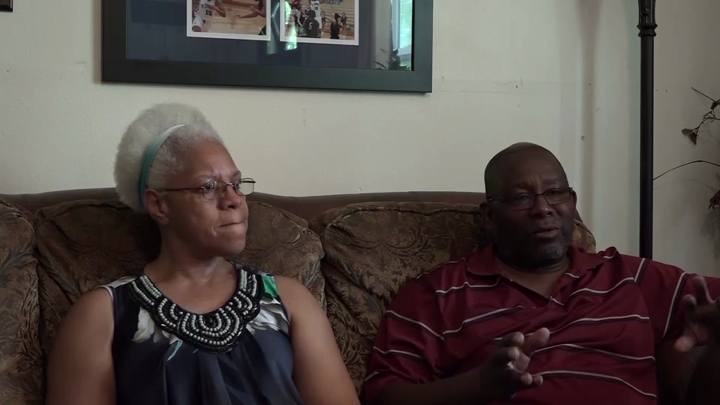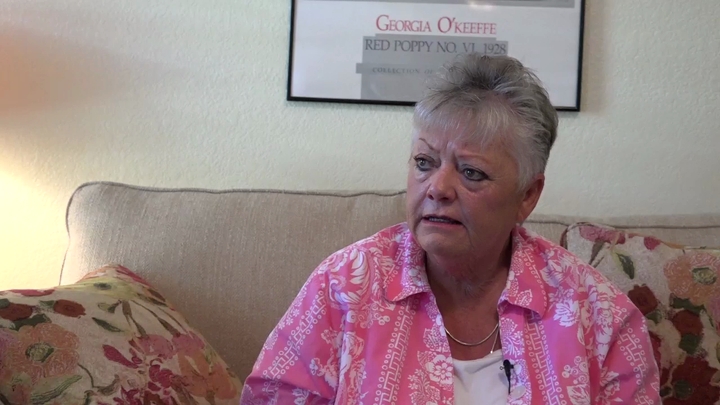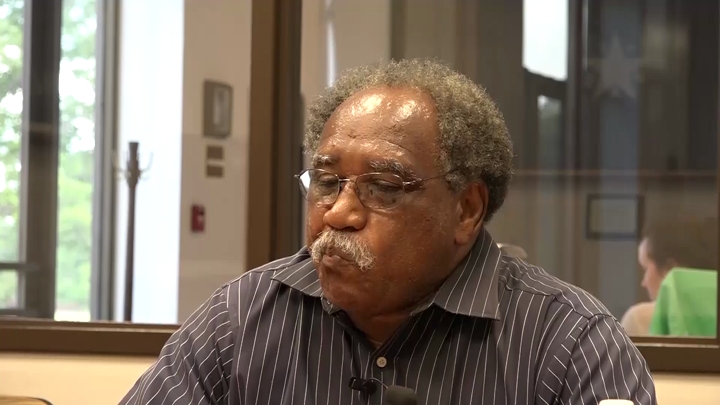Cross / Childhood Memories
sign up or sign in to add/edit transcript
Interviewer: What was the racial makeup of Mineral Wells? Cross: Oh, I can give an example because from first grade to twelfth grade, we had a hundred twenty-five students. That’s black students in a segregated school. I really don’t know the population of the blacks to white, but I would say it would be something like seventy-five, twenty-five. Something like that. Interviewer: Alright. So, who were some of your role models when you were growing up? Cross: My father because he had to struggle. My mother and father, I think they went to school to about the eight grade or something like that. They didn’t have a lot of education. He was one of my role models because it was hard for blacks to make it in those days and it’s just certain jobs that blacks could work. It was like janitorial and of course we had two hotels, the Crazy Water Hotel and the Baker Hotel and most all blacks worked at those hotels either has hall-boys, maids, waiters, elevator operators and things like that. Those were the most jobs that blacks had. Then most women would work at a laundry, hotel laundry or work in private homes. Cooking or domestic servant. Interviewer: So, when do you remember your first personal experience with Jim Crow. Cross: Whoa! (laughs) Well, I was telling my wife, we went out to that roadhouse or whatever it is. I can’t think of the name of it now, but where they throw the peanuts on the floor— Interviewer: Logan’s. Cross: Logan’s. We went to Logan’s yesterday. So, when we got there, there was a whole lot of people there. So, we had to stand up. We didn’t even have a seat. So, they start thinning out and thinning out and thinning out and people coming in, you know. When we got down to just the three of us, nobody else was in there. I told my daughter and my wife, I said, you know, it reminds me of when I used to go shopping in Mineral Wells and you would go to these stores. They wouldn’t wait on you until all these whites had been waited on. You could be the first in the store, but when the whites came in, they would leave and wait on them. You had to stand around and wait until they had waited on all of the whites and then they would get to you. That kind of reminds me of that when we were at the Logan’s and we was the last three left. I said, “I know they not discriminating, but it seems that way because I know some people came in after we had been here.” Yet, we were the last three to get a table. So, it just reminded me of how it used to be at home when I was there.
| Interview | Interview with Herbert Cross |
| Subjects | Family › Family Histories and Traditions |
| Work › Occupations | |
| Work › "Women's Jobs" | |
| Work › "Black Jobs" | |
| Work › Discrimination at Work › Discrimination at Work: Race and Ethnicity | |
| Race Relations | |
| Discrimination or Segregation › Discrimination or Segregation at Work | |
| Education › Elementary Education | |
| Education › Secondary Education | |
| Historic Periods › Jim Crow Period | |
| Tags | Mineral Wells, TX |
| Race demographics | |
| Role Models | |
| Jim Crow South | |
| sign up or sign in to add/edit tags | |
| Interview date | 2016-06-20 |
| Interview source | CRBB Summer 2016 |
| Interviewees | Cross, Herbert |
| Interviewers | May, Meredith |
| Duration | 00:03:51 |
| Citation | "Childhood Memories," from Herbert Cross oral history interview with Meredith May, June 20, 2016, Lufkin, TX, Civil Rights in Black and Brown Interview Database, https://crbb.tcu.edu/clips/2387/childhood-memories-3, accessed February 19, 2026 |






